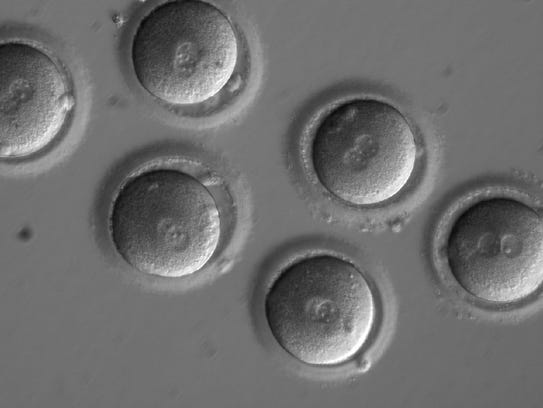 For the first time, scientists working in a U.S. lab have used gene editing to correct a disease-causing mutation in viable human embryos, according to scientific paper published Wednesday.
For the first time, scientists working in a U.S. lab have used gene editing to correct a disease-causing mutation in viable human embryos, according to scientific paper published Wednesday.
The work, reported in Nature, could be a step toward genetically modified babies. But the altered embryos created in the study were quickly destroyed and never intended to be implanted in a woman — a step that would be illegal under current regulations in the United States and many other countries.
Still, the experiment moves the idea of tinkering with genes before birth “from future fantasy to the world of possibility,” said Peter Braude, an emeritus professor of obstetrics and gynecology at King’s College London.
Safety and ethical questions remain, Braude and other experts not involved in the research said. And the technique has not been perfected enough to warrant moving forward.
“We still have room to improve,” said Shoukhrat Mitalipov, a researcher at Oregon Health & Science University (OHSU), Portland and lead author of the paper.


 In the middle of the 7th century, a plague swept through the walled city of Jerash,...
In the middle of the 7th century, a plague swept through the walled city of Jerash,... A newly discovered species of large dinosaur lived in marshy areas, hunted for fish and had...
A newly discovered species of large dinosaur lived in marshy areas, hunted for fish and had... On February 26, 2025, a NASA probe called Lunar Trailblazer lifted off from Kennedy Space Center...
On February 26, 2025, a NASA probe called Lunar Trailblazer lifted off from Kennedy Space Center... She navigated segregation to become an esteemed mathematician — and today, her work helps billions of...
She navigated segregation to become an esteemed mathematician — and today, her work helps billions of...






























